While I do dabble in PC gaming every now and again, my heart has always belonged to the console. Well, that was until I got to try Tecno x Geekom Megamini G1, which is a gaming PC unlike anything I’ve ever used before.
Why? Well, let’s get the obvious out the way — it’s the world’s smallest liquid-cooled machine. At 10 x 6 x 6 inches and weighing 8.2 pounds, it feels almost impossibly small and light for what raw horsepower and potential for sustained performance is in here. That liquid cooling guarantees solid sustained performance, even when you’re throwing some graphically-intense games at it.
On top of this, the chassis is a seriously sexy aluminum cage that reveals all of its parts in a voluptuously voyeuristic show of RGB, and is resplendent in all the I/O you need to either use this on your desk or pop it next to your TV (like I did).
There are really only two downsides here — the price and the specs you get for it. Prices start from an MSRP of $1,699, and the spec we have with 13th Gen Intel Core i9-13900H, RTX 4060 laptop GPU, 32GB DDR5 RAM and a 2TB SSD comes in at $1,899.
At the time we’re publishing this you could pick up the rather competitive Minisforum AtomMan G7 PT for $400 less, or could pick up a gaming tower with a desktop version of the i9, an RTX 4070 (again, the desktop version), and the same amount of RAM for $300 less.
So the real question you have to ask yourself is how important is that size? You could get more for less if you go for a tower. But if you’re looking for a sweet spot between small stature and big in performance, the Megamini G1 absolutely nails it as one of the best mini PCs you can buy.
Geekom Megamini G1: Cheat Sheet
- What is it? This is a mini gaming PC with liquid cooling.
- Who is it for? This is for the gaming enthusiasts who either want a small desktop for their setup, or are looking for a gaming PC that can take pride of place next to the living room TV.
- What does it cost? Prices start at $1,699 and go up to $1,899. Currently you can pick one up for a little less as part of Megamini G1’s Kickstarter campaign (funding goal has been reached). If you want the confidence of buying from the retailer when mass production has started, you will be able to buy it starting November.
- What do we like? Small in size but big on power, the Megamini G1 is the combo breaker of a mini PC with enough gaming prowess and liquid cooling for strong sustained framerates — all packed into a sleek shell with a ton of I/O.
- What don’t we like? The only proper obstacle is going to be that price point. If you’re jumping into the gaming PC space, you can get desktop towers or other mini PCs with more power for less money.
Geekom Megamini G1: Specs
| Row 0 – Cell 0 | Geekom Megamini G1 (as tested) |
| Price | From $1,699 ($1,899 as reviewed) |
| CPU | Intel Core i9-13900H |
| GPU | Nvidia GeForce RTX 4060 (8GB VRAM) |
| RAM | 32 GB DDR5 |
| Storage | Up to 2TB SSD |
| Ports (front) | 2x USB 3.2. Gen 2 Type-A, 2x USB 3.2. Gen 1 Type-A, 3.5mm audio jack, SD card slot |
| Ports (back) | 1x Thunderbolt 4, 1x USB-C, 2x HDMI 2.0, 1x 2.5G ethernet, 1x USB 2.0, 1x USB 3.0, 1x Oculink port (for eGPUs) |
| Connectivity | Wi-Fi 6E, Bluetooth 5.2 |
| Size | 10 x 6 x 6 inches |
| Weight | 8.2 pounds |
Geekom Megamini G1: What we like
The Megamini G1 is easily one of my favorite computers of the past few years, and it comes down to three things: the insanely small size with thoughtful details, the respectable power, and the I/O to really get things done too.
Size matters
When you think of a gaming PC, what do you see? A gargantuan tower that either takes up half your desk space or hides in a corner. They don’t look bad, but the size and stature of them does make them a little inconvenient at best, and a downright deal breaker for small apartment dwellers like me.
Enter the Megamini G1: I’m floored by how this thing is basically a quarter the size of your average tower. In fact, if you fancy a laugh, it’s actually smaller and lighter than the Xbox Series X.
| Device | Size | Weight |
|---|---|---|
| Megamini G1 | 10 x 6 x 6 inches | 8.2 pounds |
| AtomMan G7 PT | 11.2 x 6 x 2.4 inches | 6.2 pounds |
| Xbox Series X | 11.9 x 6 x 6 inches | 9.8 pounds |
Not only that, but the specs are more than ready and willing to take on the best PC games at super smooth frame rates in 1440p or even 4K with DLSS (more on that later). And with the thoughtful touches like and a built-in display that shows you real-time CPU and GPU loads as well, this is a well-thought out system.
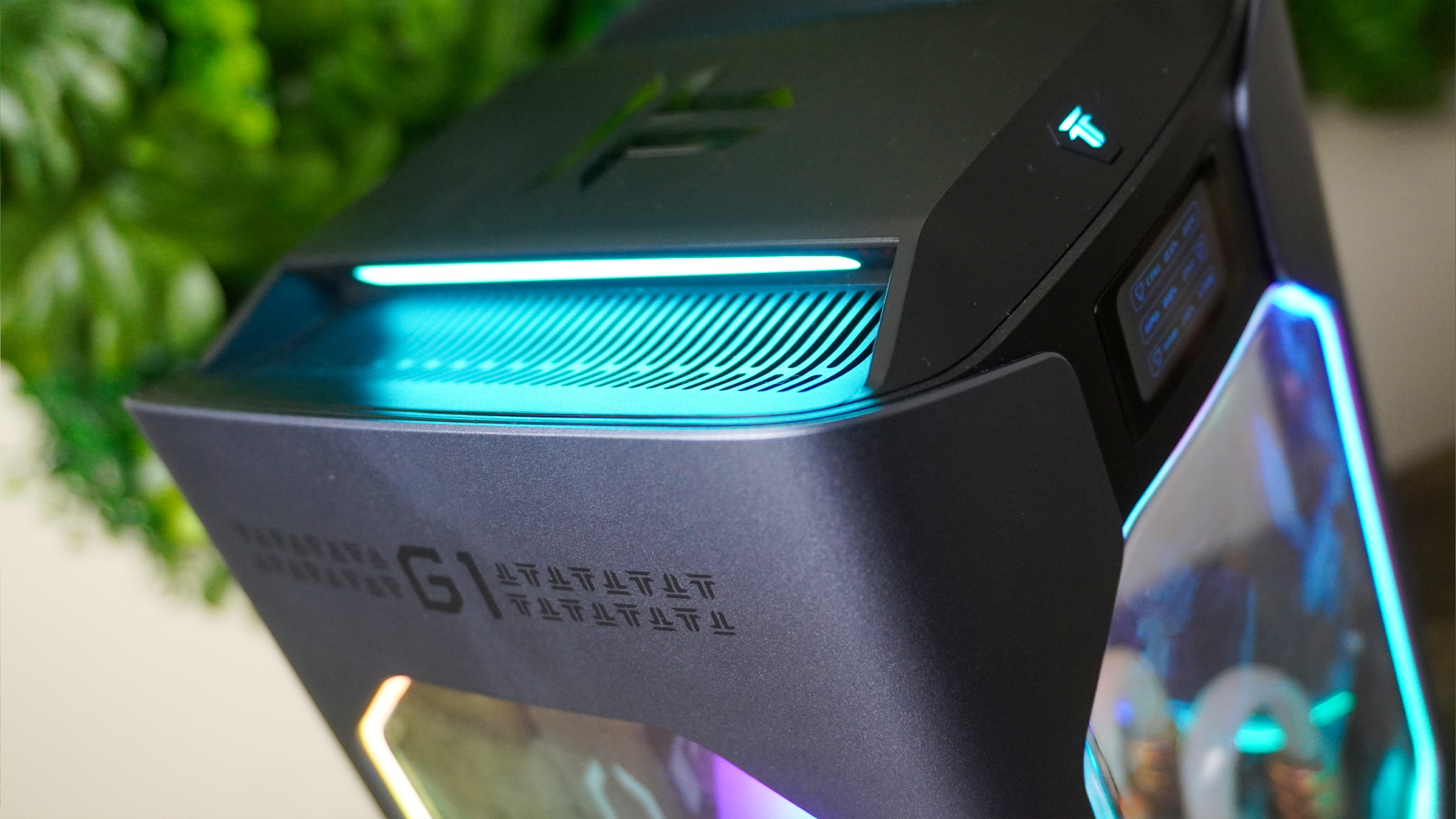
Plus, it’s very easy on the eyes. That aluminum shell with glass windows reveal the liquid cooling at work with a tasteful amount of RGB lighting. Put simply, it looks powerful, and I love it — small enough for a small desk, and tiny enough to be placed next to your TV for a console-esque gaming experience.
Surprising horsepower
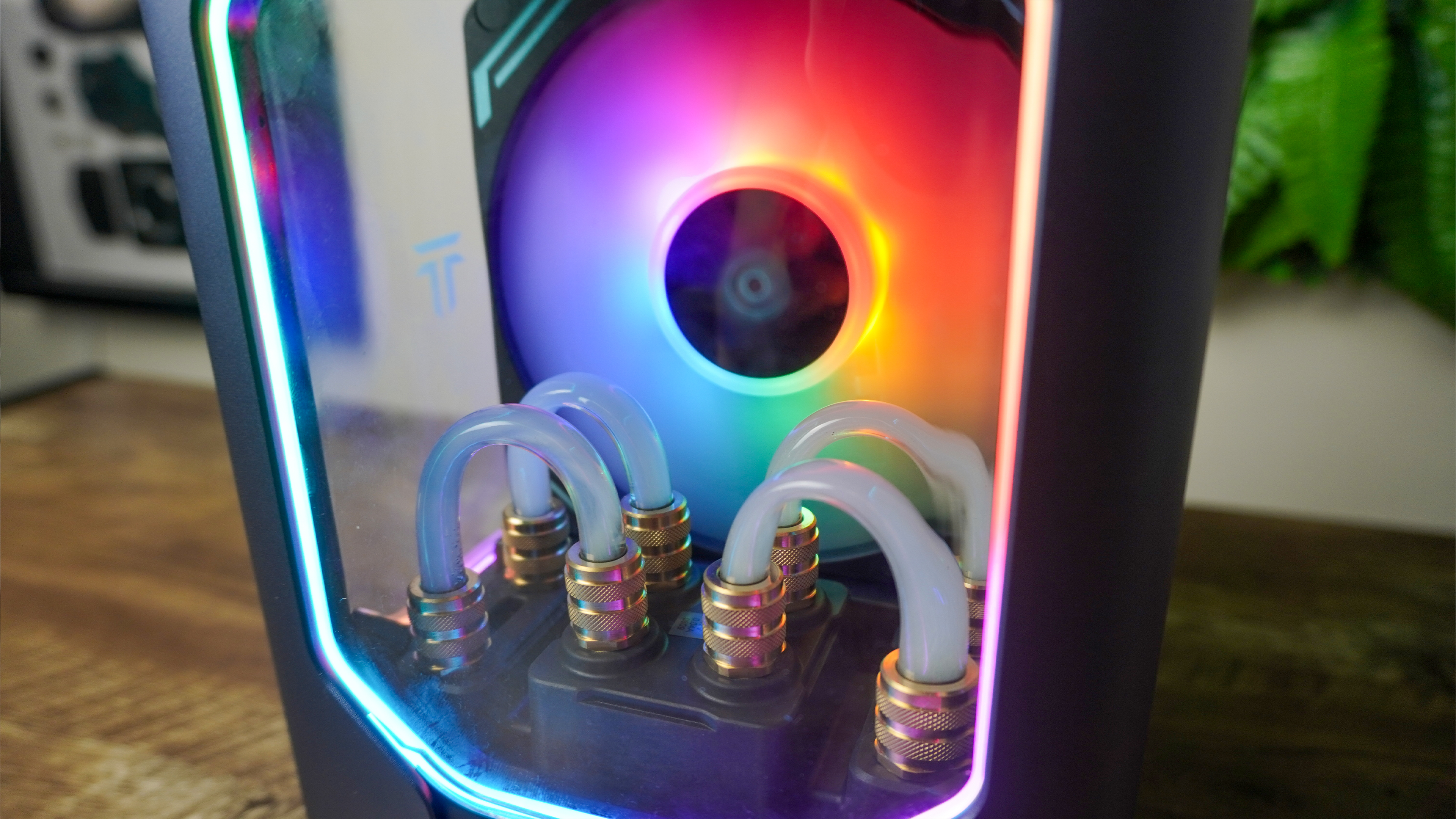
So let me be clear from the outset. These are laptop parts in here, and you can get better value for money with other far larger gaming towers. But the more I used it, the more I realized that the gap between desktop and laptop may not be as huge as I initially feared.
| Benchmark | Megamini G1 | AtomMan G7 PT |
|---|---|---|
| Geekbench 6.3 single-core | 2293 | 2889 |
| Geekbench 6.3 multicore | 13999 | 16633 |
| Geekbench AI (GPU) | 15892 | 13477 |
| CrossMark (overall score) | 1970 | 2090 |
| Handbrake (time to transcode 4k to 1080p mm:ss) | 02:56 | 02:52 |
The high number of cores and threads on the 13th Gen Intel Core i9, the speed of DDR5 RAM and the quickness of that SSD makes this a solid workhorse for the day-to-day, with the aid of that GPU for any creatively intense tasks. It does fall behind the AMD Ryzen 9 7945HX found in the G7 PT, but not to the point that you’ll notice any real discernible difference.
But of course, you’re here for the games, and the results here are a bit all over the shop. When it comes to games that rely more heavily on the GPU, you start to see the RTX 4060’s capabilities jump ahead here. Anything more CPU-reliant, the G7 PT takes the cake.
| Benchmark | Megamini G1 | AtomMan G7 PT |
|---|---|---|
| 3DMark Fire Strike | 25443 | 28123 |
| 3DMark Steel Nomad | 2319 | 2232 |
| 3DMark Port Royal | 6160 | 5446 |
| Cyberpunk 2077 (1080p Ultra) | 25.54 FPS | 21.35 FPS |
| Shadow of the Tomb Raider (1080p Ultra) | 85 FPS | 86 FPS |
All things considered, though, these are impressive numbers for what is inside this machine — easily beating the consoles that you’d be replacing and offering super fast frame rates at 1080p or 1440p (the sweet spot for a configuration like this).
Oh and let’s not forget the sustained performance here too. That liquid cooling keeps things at a crazy low temperature. Two hours into Forza Horizon 5 (4K high settings with DLSS turned on) and I was seeing CPU temps barely exceed 113 degrees Fahrenheit, and the GPU sat pretty at an average of 130 degrees. Toasty, don’t get me wrong, but with my internal red flag waving at far higher temperatures like 170 upwards, not a problem.
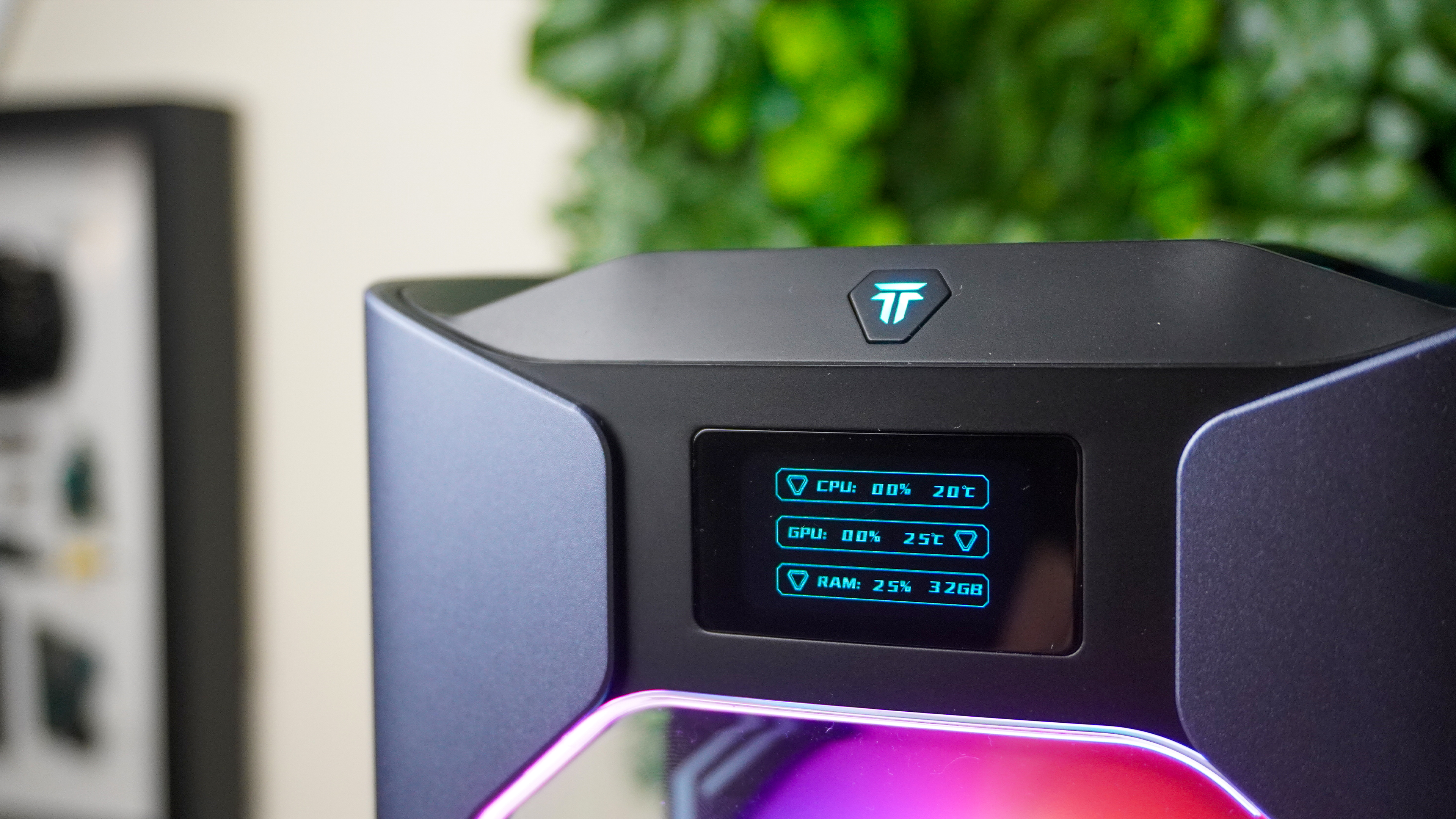
Plus, there is the superpower here in the form of Nvidia’s DLSS tech — generating frames and upscaling resolution with AI instead of relying on the raw hardware performance. It’s the difference in some situations between getting 4K gameplay at 10 FPS and upping it to 30 FPS (hello, Cyberpunk 2077).
So with that versatility of being able to get that game changing smoothness at lower resolutions or a 30 FPS minimum at DLSS-driven 4K for titles that don’t need that buttery nature, this is capable of it all with tweaking.
Impressive I/O
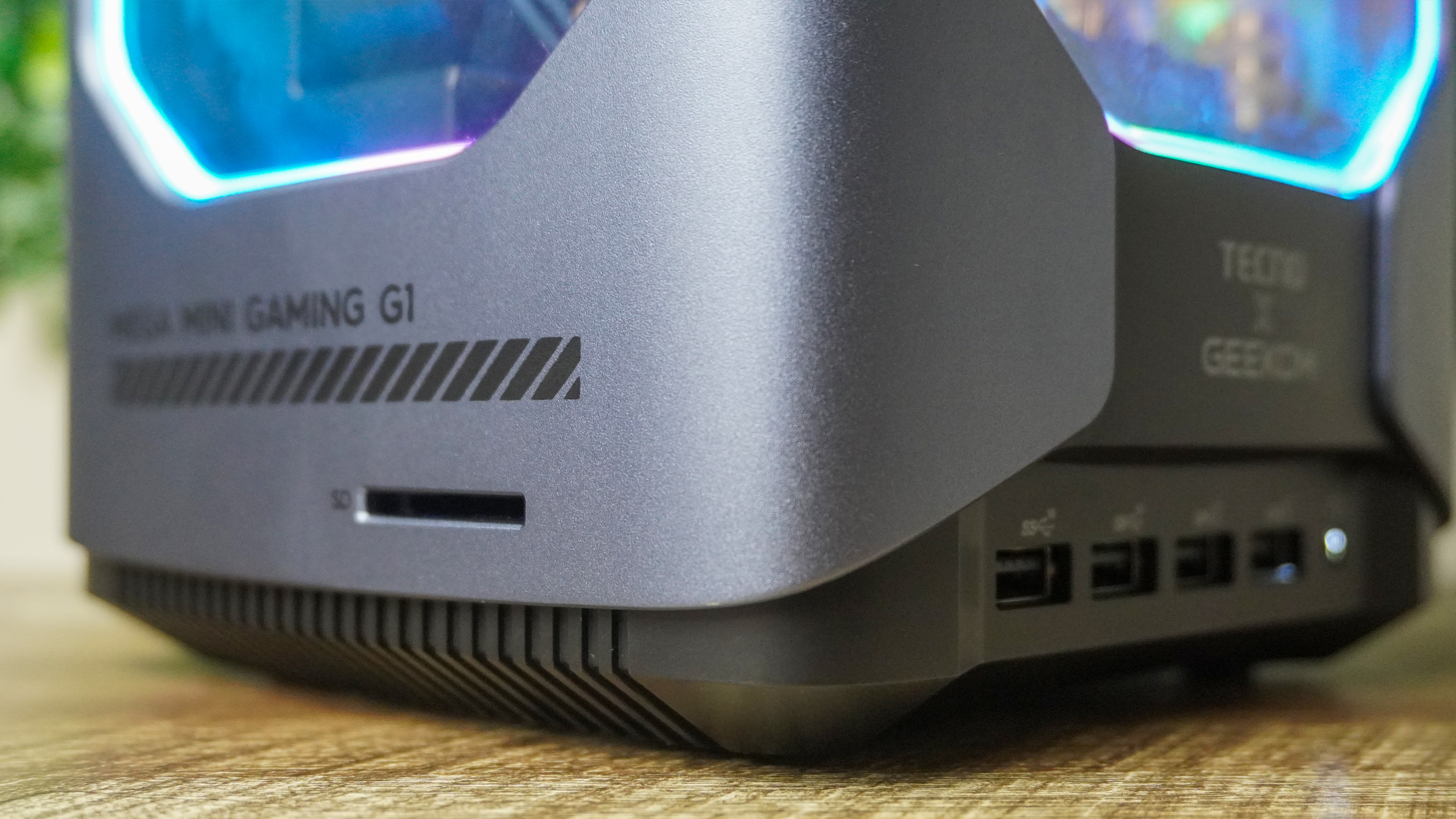
Unlike your average mini PC, this system has I/O out the wazoo — equivalent to the huge array of ports you’d normally see in a full-size tower.
From all the USB-A ports you could possibly want to Thunderbolt 4, 2.5 gigabit ethernet, and a full-size SD card slot, there’s enough here to attach the best gaming keyboard and mouse, along with all the peripherals you have to get work done.
And on top of that, the Oculink port means you could attach an external GPU in the future, when you want to upgrade from that RTX 4060 laptop GPU. Also, shout-out to how easy it is to get to the RAM and SSD for upgrades too!
Geekom Megamini G1: What we don’t like
But while this machine is easy to fall in love with, the relationship gets a little more complicated because of two key reasons.
HDMI 2.0h no
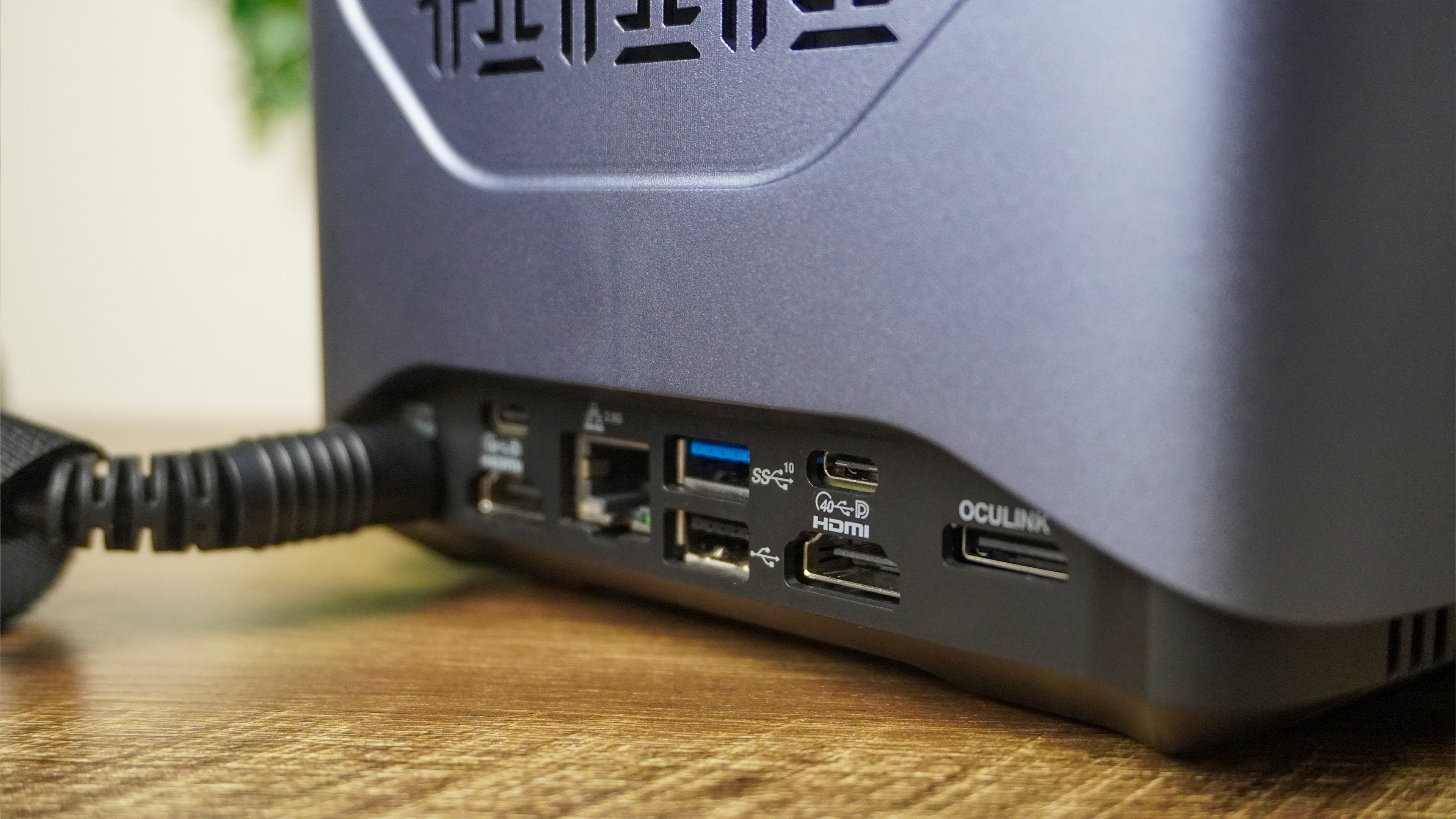
You see so many RTX 4060 gaming laptops sport a HDMI 2.1 port, so why are the sockets on here just 2.0? Technologically, I can see the reason — the dual display support at 4K 120Hz isn’t the best idea to try and do on an RTX 4060 laptop GPU.
However, if I had to pick between two HDMI 2.0 or a single HDMI 2.1 and a DisplayPort a la AtomMan, I’d opt for the latter in a heartbeat. Because while many demanding games are best played at 1440p for that smoother frame rate, there are a ton of indie games that I’d love to see soar at 4K 120 FPS, which I can’t because of that 60Hz restriction.
Let’s talk about price-to-performance
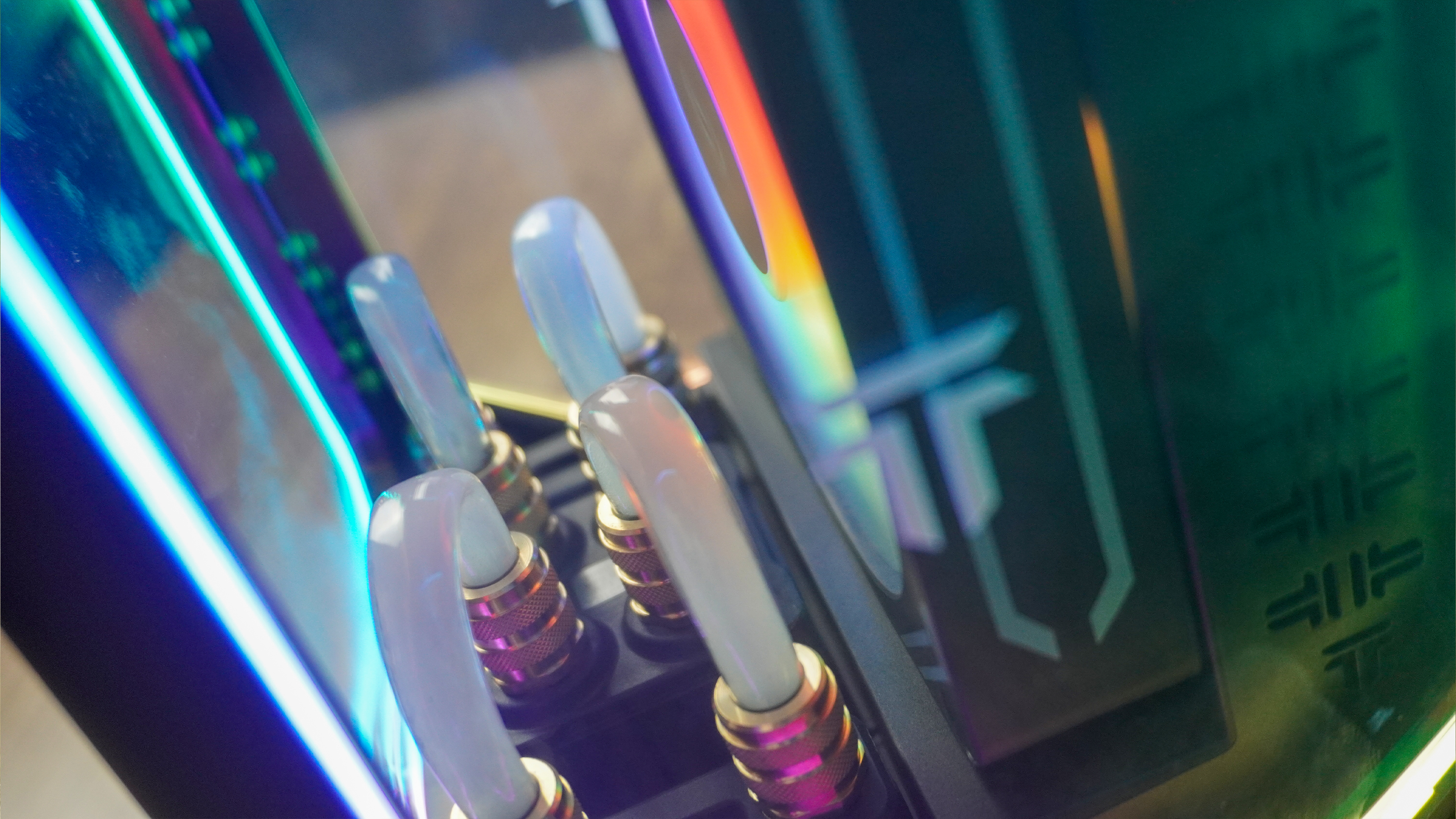
If you know anything about me and Tom’s Guide as a whole, we care about getting you the best bang for your buck. The Megamini is pretty mega, don’t get me wrong, but if the price to performance is big in your mind, then this is a challenging purchase to justify.
A good example is to take a look at what tops our best gaming PCs list — the Alienware Aurora R16. Now, I know that you don’t get the benefit of the super small size, but at $1,299 for a desktop-class set of specs and liquid cooling, that’s a lot cheaper. The spec we tested gets you even more with an RTX 4070 desktop GPU, and it’s the same price as the Megamini ($1,899 for the better CPU and bigger SSD).
| PC | Average price per frame (measured against 10 games at 1080p) |
|---|---|
| Megamini G1 | $35.71 |
| AtomMan G7 PT | $34.05 |
| Alienware Aurora R16 | $13.19 |
Yes I know this is a rather rudimentary calculation that misses the point of a mini PC, but the end result is a far lower price per frame across every game on the Alienware, and even the AtomMan G7 PT.
And look, I get that in the mini gaming PC space, this price may actually be viewed as a breath of fresh air — especially when compared to bigger brands like Asus ROG NUCs. I just wanted to make this clear so you know what you can actually get for your money and make the right decision for you.
Geekom Megamini G1: Verdict
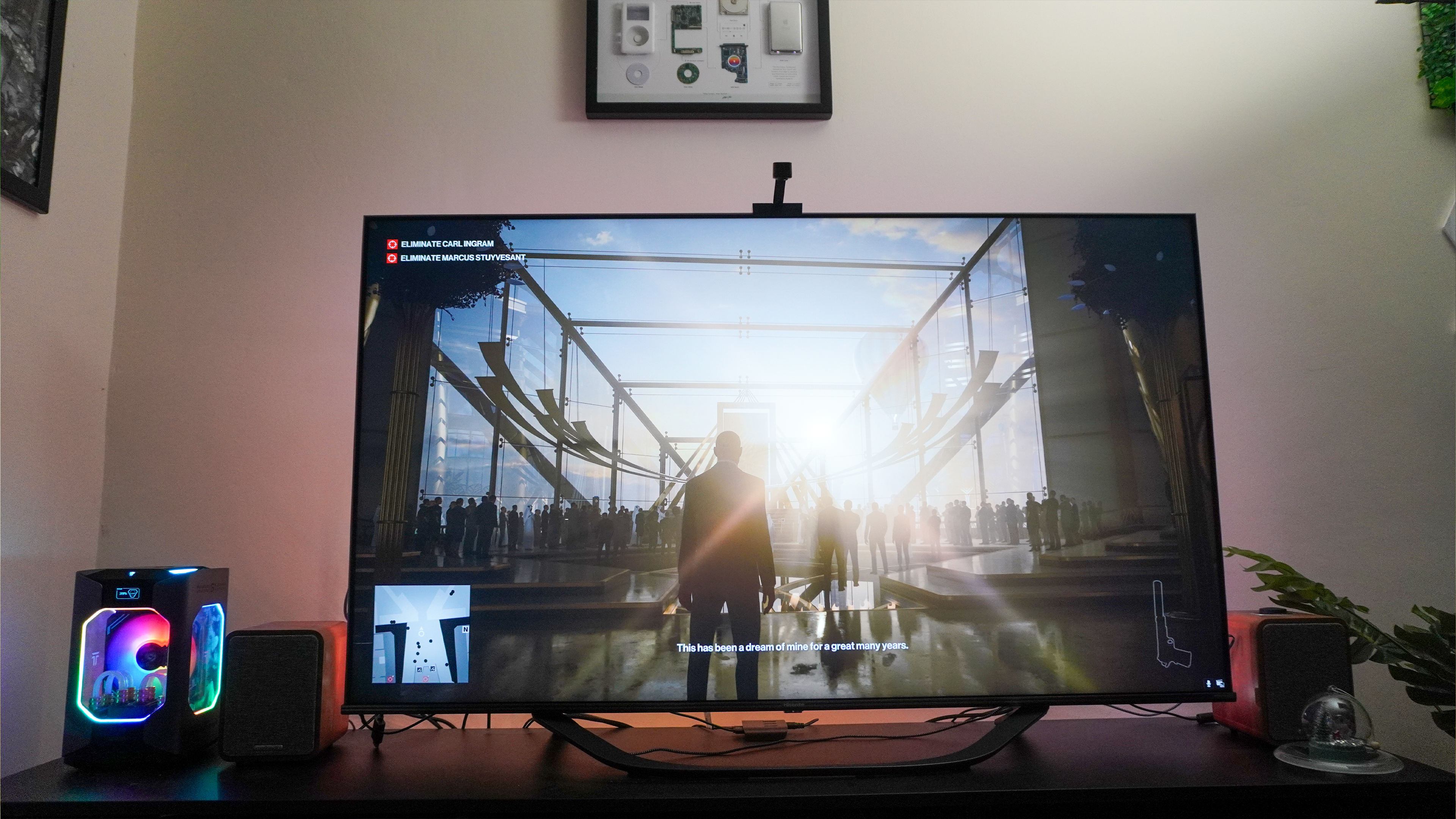
And after that complicated story of pros and cons, this left me a little stuck on how to rate the Megamini G1. But balancing everything together, knowing this is more powerful than your average games console, and all the additional things you can do on it (thanks to it being a PC), I’m left with love in my heart for it.
For a tiny flat dweller, this is what I wanted from a gaming PC — something that’s not going to take up half my living room, even if it does have enough horsepower to run everything under the sun. I want something that gives me enough for the games I play, while blending in perfectly with my living room setup.
This is what the Megamini achieves, and with its feature set, this becomes one of the best mini gaming PCs you can buy (provided you can stomach the price).
